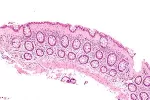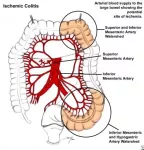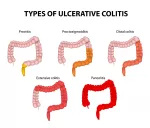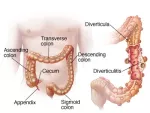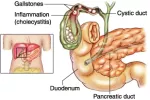
Diverticulosis is a condition that develops when pouches (diverticula ) form in the wall of the colon (large intestine ). These pouches are usually very small (5 to 10 millimeters) in diameter but can be larger.
In diverticulosis, the pouches in the colon wall do not cause symptoms. Diverticulosis may not be discovered unless symptoms occur, such as in painful diverticular disease or in diverticulitis. As many as 80 out of 100 people who have diverticulosis never get diverticulitis. In many cases, diverticulosis is discovered only when tests are done to find the cause of a different medical problem or during a screening exam.
Causes of the diverticulosis
The reason pouches (diverticula) form in the colon wall is not completely understood. Doctors think diverticula form when high pressure inside the colon pushes against weak spots in the colon wall.
Normally, a diet with adequate fiber (also called roughage) produces stool that is bulky and can move easily through the colon. If a diet is low in fiber, the colon must exert more pressure than usual to move small, hard stool. A low-fiber diet also can increase the time stool remains in the bowel, adding to the high pressure.
Pouches may form when the high pressure pushes against weak spots in the colon where blood vessels pass through the muscle layer of the bowel wall to supply blood to the inner wall.
Symptoms of the the diverticulosis
Most people don\'t have symptoms. You may have had diverticulosis for years by the time symptoms occur (if they do). Over time, some people get an infection in the pouches (diverticulitis).
Your doctor may use the term painful diverticular disease. It\'s likely that painful diverticular disease is caused by irritable bowel syndrome (IBS). Symptoms include diarrhea and cramping abdominal (belly) pain, with no fever or other sign of an infection.




